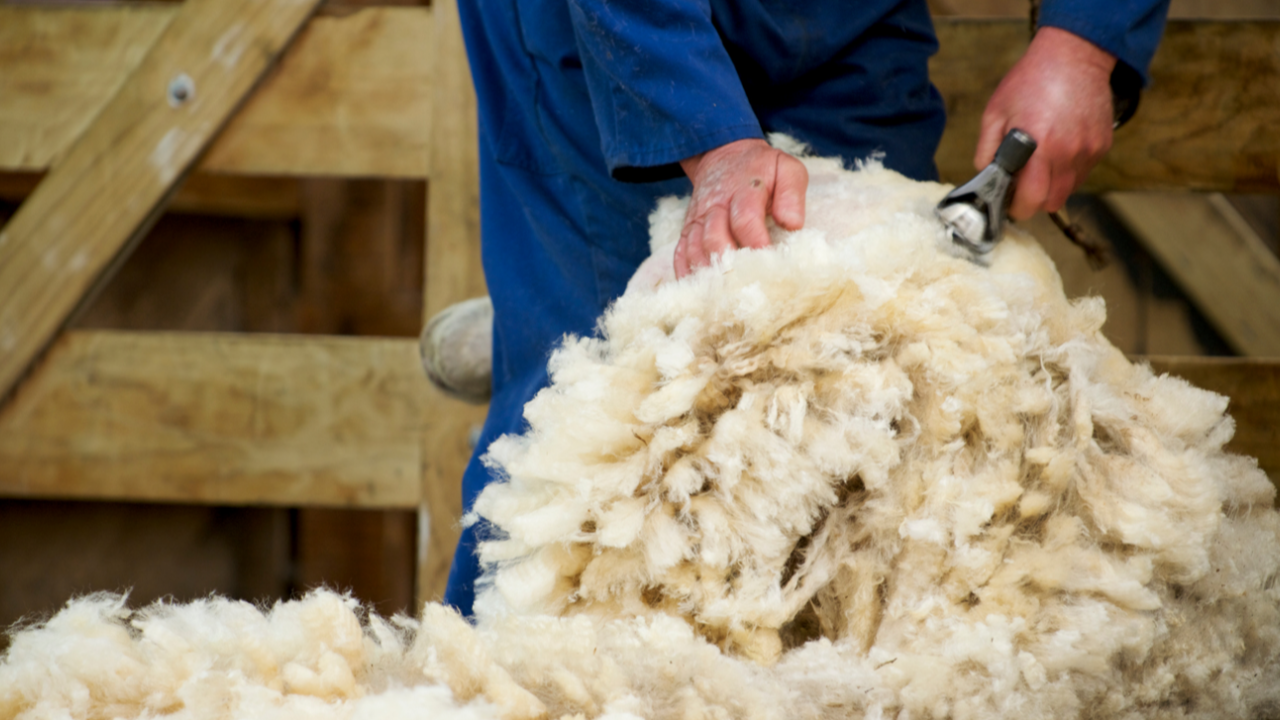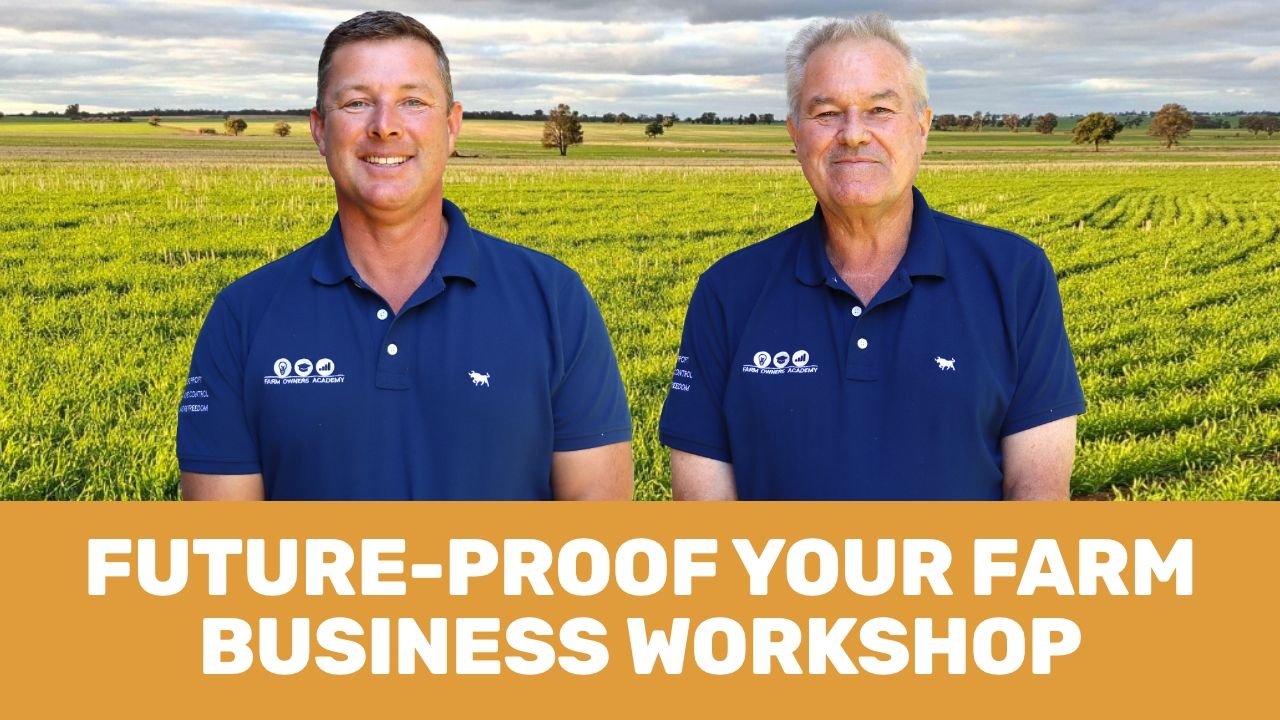The Big Secret Rich Farm Owners Know (and Average Farm Owners Don’t)
Aug 12, 2021
An insider secret rich farm owners know that the rest of us don’t?
Focussing on cutting costs in your farm business is probably keeping you broke.
Okay, maybe its not keeping you broke-broke…but it’s very unlikely that it is making you rich.
It’s counter-intuitive, I know. And we’re not saying reducing costs is bad and to be avoided!
But focusing on this method over the long run is undoubtedly different than what rich farm business owners do.
When you understand this, you’ll shift your thinking to maximum profit rather than minimum cost!
Here’s an example to show you what I mean…
My friend’s farmdog had a nasty case of pancreatitis earlier this year. To save the dog’s life, the emergency vet put him on a strong dose of steroids.
The steroids did the trick and the dog’s health improved.
Now, those steroids saved the dog’s life, no question about it. But that medicine won’t help him achieve better long-term health. In fact, if he continued with steroids long-term, it would actually degrade his health, as the medicine has some nasty side effects.
It was a short-term fix, not a long-term one.
In order to live a long, full life, the dog needed a new healthy diet. My friend saw a different vet who specialised in nutrition to come up with a food plan that would keep her dog on the right path.
The two vets were equally qualified and equally important to the health of her dog…but they had different goals and methods.
The emergency vet focused on the short-term: saving the dog’s life. The nutrition vet focused on the long-term: maintaining good health for years and years.
Think of cutting costs like the emergency vet…
The goal is to save money this year but miss the opportunity that is in front for higher profits year on year.
Put another way: Your decisions to cut costs may save you $1 this year, only to cost you $10 in the long-run.
If you want to maximise profit, you need to shift your focus a bit…
The secret rich farm owners know (and average farm owners don’t)
If you want to build true wealth…
You’ve got to stop thinking like about cutting costs (a little windfall this year)…
And start thinking like a rich business owner (who aims for big wins over the long-term.)
The most successful farm owners know it’s better to increase revenue than cut costs.
They ask “How do I maximise profit?” rather than “How do I minimise cost?”
Put another way: “How can I use what I have to make more money in the long-term?” Vs. “How can I save a couple bucks this year?”
When you focus on increasing revenue, it can have a multiplying effect on your profits…and that effect doesn’t happen when you just reduce costs.
Here’s an example to show you how this works:
If you make $1.00 in income…
- $0.30 of that income might go to your variable costs — things that increase/decrease depending on how much you produce, like labour, seed, animal health, etc.
- $0.30 may be fixed or overhead costs — things you have to pay regardless of how much you produce, like plant and equipment, council rates, repairs and maintenance, etc.
- …Leaving $0.40 (40% of your income) as profit
OPTION 1: If you reduce your fixed costs by 10%…
- Your income remains $1.00
- Your variable costs will stay the same ($0.30)
- You’ll save 10% ($0.03) on fixed costs (new total: $0.27)
- Now you’ll keep $0.43(43%) as profit
OPTION 2: If you increase your revenue by 10%…
- Your income increases to $1.10
- To achieve that 10% increase, your variable costs might have increased by 10% too (to $0.33)*
- Your fixed costs likely stayed the same (still $0.30)
- …Leaving $0.47 (47%) profit
See how that works?
You’ll keep $0.07 (70%) of that extra $0.10 income as profit…compared to only 40% profit that you made originally and 43% when you cut costs.
*NOTE: There are lots of examples where an increase in income can be achieved without an equivalent % increase in variable costs! Click here to find out how.
It doesn’t sound like much when we’re talking about $1. But when you multiply that out over a million dollars, it’s a fair bit.
The important takeaway: an increase in income doesn’t scale up proportionally! Your profit line grows quicker when you increase your revenue by a percentage than if you decrease your costs by a percentage.
That’s why rich farm owners focus on growing revenue, rather than cutting costs.
The proof is in the pudding
Don’t take our word for it that you’ll make more money by increasing revenue than decreasing costs.
Check out this study from the Wimmera region of Australia…
For croppers, the top 20% profitability farms have higher costs (blue bars)…but significantly higher income (black line):

And it gets even more interesting when you break it down further…

When you look at costs as a percentage of income — Total Farm Costs Ratio in the chart above — the top 20% farmers have much lower ratios than the average farmer (around 75% vs. 90%).
This may be counter intuitive as in the first graph we showed you that the top 20% businesses had higher costs but they have a lower cost ratio. Why is this happening?…Overall they are producing more output. They are using that slightly higher cost base to drive considerably more production which results in those costs being spread out over more units of production (or income).
What this means is that they have a lower cost of production (the cost per unit of output).
AND you can see their net profit ratio — which is profit/income — is also much, much higher.
So the best performers may spend a bit more…they have a lower cost of production…but they also make a lot more overall!
That’s why rich farm owners focus more on increasing revenue than decreasing costs. If you want to be a top producer, that’s what you should focus on as well.
The way that you start is by getting the right business model that delivers better profits.
The good news?
You’ve just completed your first big 3 finance lessons!
- Most farm owners rely on what their parents taught them for advice on their business…and now you know when you should (and shouldn’t) heed their suggestions.
- Most farm owners think cutting costs is the best strategy to keep more money in their pockets…and now you know that can cost you in the long run.
- Most farm owners think decreasing expenses is the best way to grow profits…and now you’ve seen the math on why growing revenue is a more powerful strategy..
The #1 most important thing you can do as a farm owner is to know your financial numbers…better than your accountant does.
Not sure where to start?
We’ve got something to help you master your financial numbers to grow your profits…
As always, we’re here to help! If this blog post piqued your interest and you want to learn more about increasing your revenue on the farm, let’s have a chat. Just send us an email at [email protected] and we’ll get it sorted.








